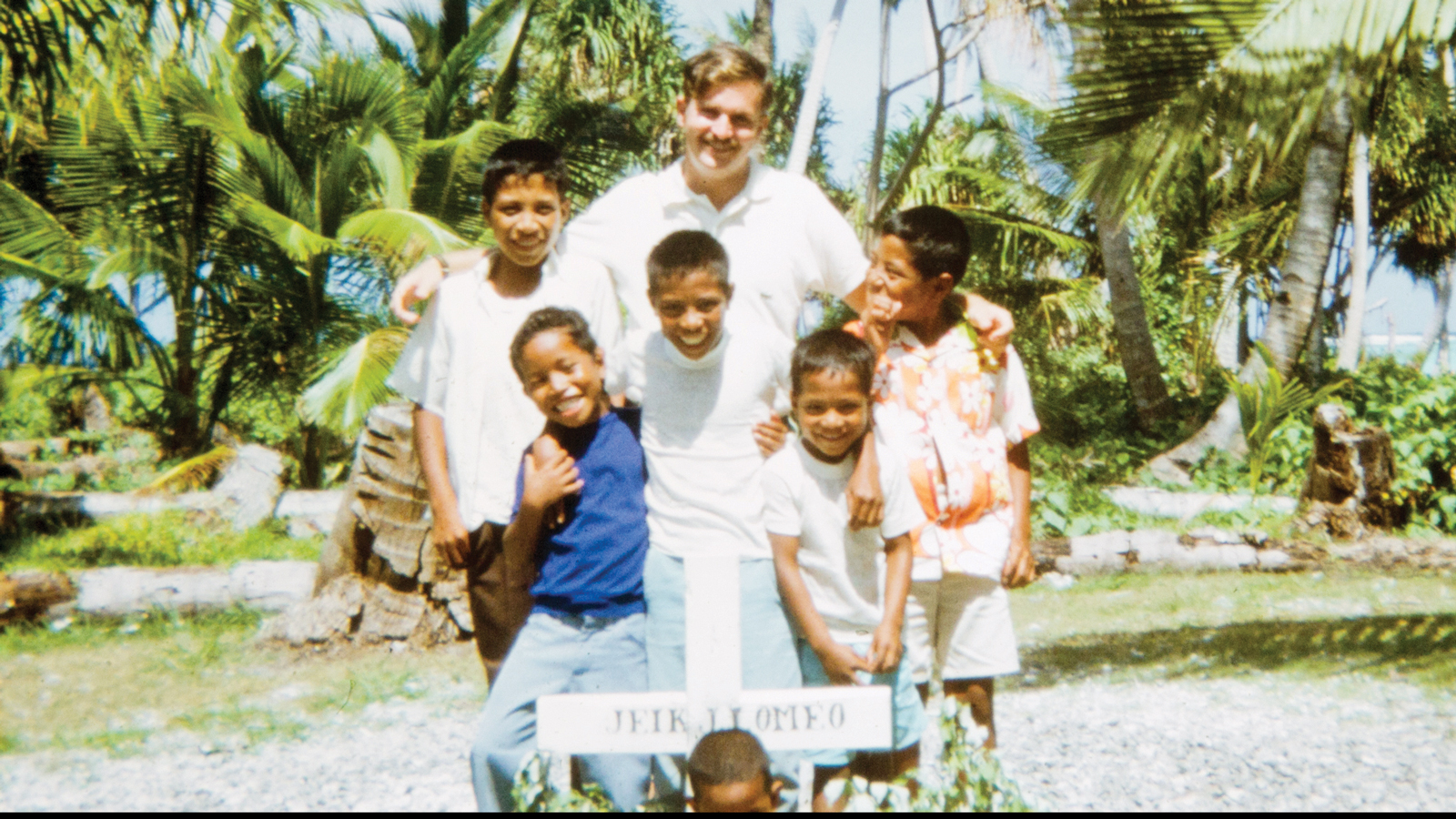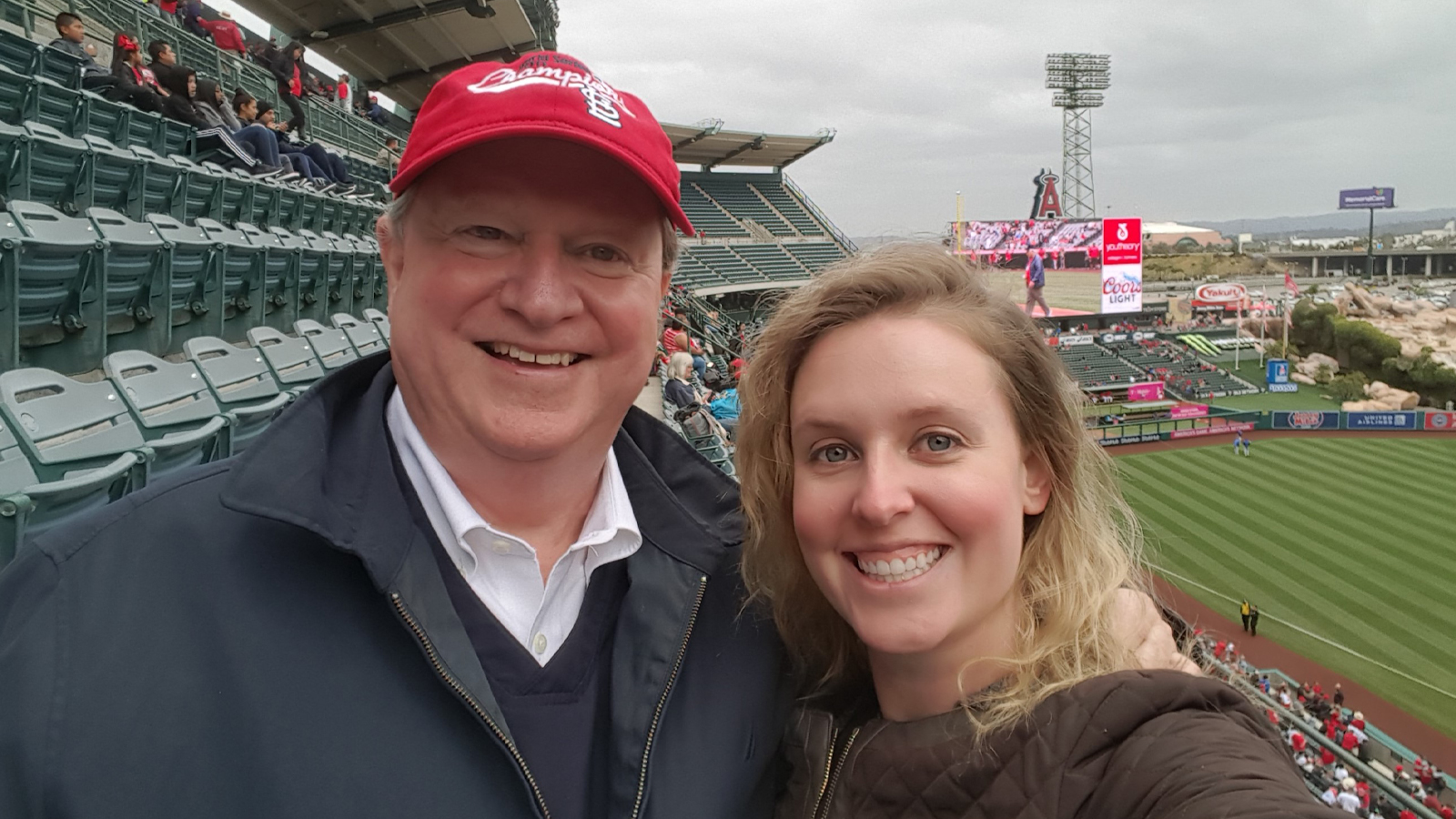
David M. Johnson Receives CBA Award of Merit
November 2021
Download This Article (.pdf)
CBA Past President David M. Johnson is this year’s recipient of the Award of Merit, the association’s highest honor. Johnson is known throughout the Colorado legal community for his civility, integrity, generosity, and spirit of service. As a lawyer, he’s stood by clients through times of crisis and led many to a better future. And his leadership with grace has inspired new and experienced attorneys alike.
Criminal Defense Beginnings
Johnson has been practicing family law in Colorado for nearly four decades, but he began as a criminal defense attorney. “I lived in St. Louis and practiced there from 1976 to 1982. As a young lawyer, while I knew the substantive law and the procedural law, the reality of representing clients, dealing with prosecutors and police officers, and trying cases was a big learning curve.”
“Back then law school offered very few clinical courses and you did not get much ‘hands on’ experience,” he explains. “I worked during law school at the juvenile court in St. Louis as a booking officer, so I gained some real-world experience there and was able to try a juvenile criminal case as a 3L with supervision. I really enjoyed being in the courtroom and got to try a lot of cases as a young lawyer and knew that was my true calling.”
Johnson recalls one of his early cases, a death penalty case he tried when he was only two-and-a-half years out of law school. “It was the first death penalty case tried in St. Louis after the Supreme Court lifted the moratorium on those cases in 1977. I tried the case alone without an investigator. It was a very ugly crime—robbery of a family-owned grocery by three men, who killed the two owners and their 20-year-old daughter. The police had very little evidence to go on and did not make arrests for several months. Eventually, one of the men told his girlfriend about it when he was drunk, and she called the police. He then confessed and implicated the two other men.”
Johnson’s client was 18 years old, accused of doing the actual shooting in the store. “The other co-defendants took plea deals and pointed the finger at my guy. My client had an alibi that he was home that day with his family. The jury found him guilty but did not impose the death penalty because I was able to introduce enough doubt about who the shooter really was. My client was sentenced to life without parole. The case was groundbreaking because the law had changed to require a guilt phase of the trial and then, if convicted, a separate penalty phase to determine life in prison or the death penalty. Even the judge was not sure what steps we needed to take after the guilty verdict came in. Nowadays death penalty cases have two to three lawyers and a bunch of investigators, and they take weeks. My trial took four days.”
Then and Now
The contrast between those days and now is stark. “So much has changed in 45 years. Back when I started, there were very few women lawyers and even fewer minority lawyers. The bench was 99% white men. And without computers or the internet, research of cases was laborious and slow. You wrote a letter to the other lawyer on some topic that took two or three days to get there and maybe a week to get an answer. If you needed quick action, you made a phone call or went to a meeting. I think we did a better job of problem solving back then than we do now because we had to deal with each other in person. We met for coffee or went to the other lawyer’s office to discuss cases and work out agreements.”
Johnson welcomes the positive institutional progress in the area of family law, though. “There is a much greater recognition that both parents play a role in bringing up the kids and that the homemaker makes a big contribution to the marital estate even if he or she is not employed outside the home—much different than back in the 60s and 70s when women were just beginning to get into the workforce. Judges back then were patronizing toward women. Now I think women are on a more equal footing in family law cases. Fathers are no longer seen as just breadwinners who get to see their kids on weekends. Judges are now more aware of domestic violence as a real problem than they were when I started. There is much more importance assigned to family law and juvenile law cases. We recognize now that how we deal with those cases, especially with kids involved, has a major impact on the community as a whole.”
Progression to Family Law
Johnson received his undergrad degree from the University of Notre Dame, where he met eight lifelong friends who still get together every year. Following college, he entered the Peace Corps, serving from 1971 to 1973 in the Marshall Islands, where he taught elementary school. He received his law degree from St. Louis University in 1976.

Johnson turned to family law when he moved to Colorado Springs in the 1980s. “I signed up to do guardian ad litem (GAL) work in the juvenile court to help build my practice in Colorado and found that I liked it and was good at it. I felt that I was making a positive contribution to the kids I represented,” he says.
“I saw some very ugly contested custody cases,” Johnson recalls. “I did my best to alleviate the harm to kids from their parents’ conflict, but I have no doubt those kids grew up with a heavy burden.” One of Johnson’s cases involved a young boy with a disability and his younger sister. “The boy got lots of attention both from his parents and the school due to his physical limitations and his ‘energetic’ personality. The little girl was fine physically but very quiet and shy. She got lost in the shuffle due to the attention going to her big brother. I made sure that she got the help she needed both in counseling and at school. Well, 30 years later she contacted me out of the blue and told me how big a difference I had made in her life and how grateful she was for what I did for her. She told me she was going to law school to become a lawyer and do GAL work like I did. She fulfilled that goal and is now a practicing lawyer. I have had emails with her over the last few years. You just never know what impact you have on the lives of people when you are a lawyer.”
And it’s not just the lives of his clients that Johnson impacts. He mentors many young lawyers. “I think it is an obligation we seasoned lawyers have to the new ones. Practicing law is hard, especially in family law. Some of the wisdom that I pass on is pretty basic: Be honest. Don’t fudge the truth. Be courteous to everyone. Work hard. Meet deadlines. You learn more by listening that you do by talking. Learn from your mistakes because you are going to make a lot of them. Pick up the phone and talk to the other lawyer. Settlement is usually better for everyone involved. Good lawyers are good problem solvers (my favorite). Courtrooms are lousy places to solve problems, especially problems related to families.”
Johnson is also grateful to have had many wonderful mentors in his day, from his first and greatest mentors, his parents, to the late Judge Doug Anderson, who demonstrated how important family law is to our society and how lawyers and judges can do a great service to families by helping them get through a very difficult time in their lives. “My mentors have all taught me one simple rule: Do the right thing.”
Serving the Bar
It was in Colorado that Johnson became much more involved with legal community as well. “I was kind of a late bloomer. I did not have leadership positions in college or in the St. Louis bar. When I moved to Colorado Springs, the legal community was much smaller than it was in St. Louis, and I was able to meet and get to know the judges and lawyers. I did some volunteer work in the courts and helped on some committees that were developing forms for domestic violence cases. Eventually, I was asked to run for president of the El Paso County Bar Association and was elected. I really enjoyed that opportunity and got to know a lot of lawyers in other areas of practice. I then became active in the CBA Family Law Section and really enjoyed that work as well, and I got to know many wonderful and talented family law lawyers. I worked my way up the ladder and eventually became section chair in 2006. I also had the opportunity to serve on the initial Supreme Court Standing Committee on Family Law Issues and helped with the drafting of Rule 16.2 during 2004 and 2005. Working on the Standing Committee under the leadership of former Justice Rebecca Love Kourlis was a tremendous opportunity to make a difference in family law. My work with the Family Law Section put me on the radar of others, and when the time came for a CBA president from the Colorado Springs area in 2009, I was nominated and then chosen.
“That was a wonderful experience and I met dozens of great lawyers. I truly enjoyed the travel to all the bar associations and seeing the great work being done every day in big cities and small towns by the lawyers. I also enjoyed serving on the Legislative Policy Committee and had the honor to work with many giants of the bar, including the late Tony Van Westrum, Andy Toft, Stacey Carpenter, Jim Benjamin, Judge Mick O’Hara, and many others. They did great work on behalf of the bar in the legislative area.”
Outside Endeavors
When not in the courtroom, Johnson enjoys fly fishing, history (particularly that of the Civil War), and good meals and conversation shared with friends, some going back to his student days at Notre Dame. He’s also a huge sports fan, of baseball in particular, a passion he shares with his adult daughter Marianne. They do an annual baseball trip to see one or two new ballparks. “So far we have done four ‘odysseys,’ visiting nine ballparks and two minor league parks. When Marianne was growing up, we saw games in St. Louis, Chicago, Boston, San Diego, and Denver.”

Marianne was also involved in one of Johnson’s favorite trial experiences, that of coaching her high school mock trial team for several years. “In her senior year her team—William Palmer High School in Colorado Springs—won the Colorado State Mock Trial Championship. I really enjoyed working with those kids, and boy, did they make me work hard! They questioned everything and were so creative. It was very rewarding to see them learn about the law but also to see them grow as public speakers and problem solvers and as a team. Mock trial should be a required course in every high school because it gives kids so many great life skills: public speaking, problem analysis, seeing both sides of a problem, how to disagree and be courteous, how to sort out the important facts from the less important facts, how the courts work, how the law works, and teamwork.”
Rewarding the Service
Of course, these same skills have been the building blocks of Johnson’s long and distinguished legal career championing the vulnerable and supporting families. The CBA is proud to present this community icon the 2021 Award of Merit. Congratulations, David!


